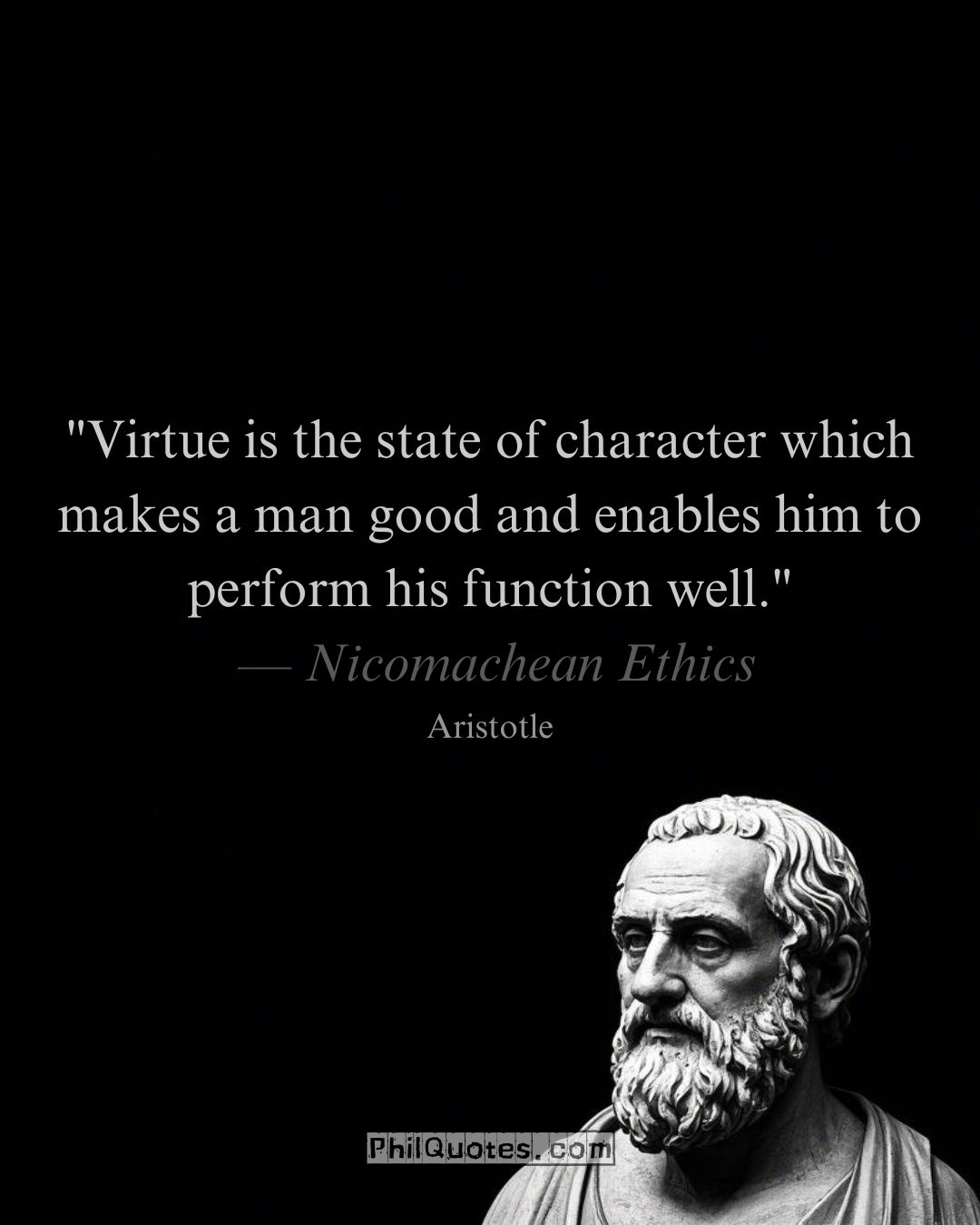
“Virtue is the state of character which makes a man good and enables him to perform his function well.”
— Aristotle, Nicomachean Ethics, Book I, Chapter 13
Explanation:
Aristotle defines virtue (aretē) as the optimized condition of human character — a calibrated alignment of reason, emotion, and action that allows individuals to fulfill their unique purpose (ergon). Like a master carpenter whose chisel becomes an extension of his skill, virtue transforms raw potential into excellence-in-action.
Real-World Connection:
① Craftsman’s Ethos →
You hone woodworking precision (character shaping) → craft heirloom furniture (functional good) → mentor apprentices in sustainable practices (social virtue) → embody artisan virtue as ecological stewardship.
② Educator’s Mission →
A teacher cultivates patience (inner virtue) → adapt lessons to diverse learners (functional excellence) → ignite lifelong curiosity in students (communal good) → prove virtue as pedagogy’s engine.
③ The Hidden Blueprint →
- Character Forging:Daily choices (honesty in small tasks) sculpt neural pathways (moral neuroplasticity)
- Function Mapping:Aligning skills with societal needs (engineers solving climate crises)
- Virtuous Feedback Loop:Excellence begets responsibility → responsibility deepens excellence